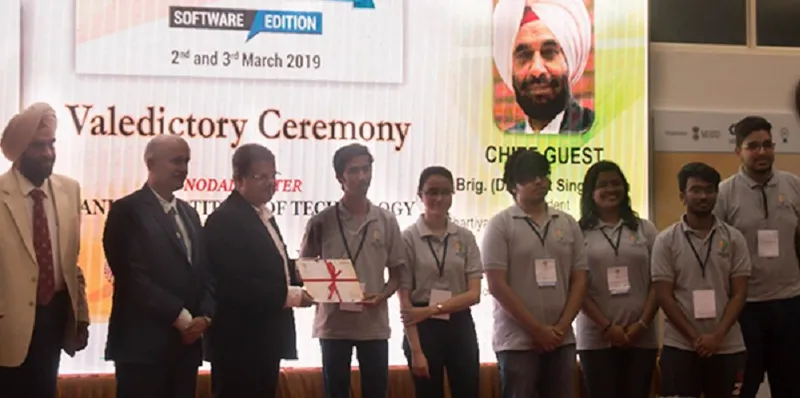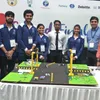These six students from SRM have developed a device that can simplify digital payments
Team Photon from SRM Institute of Science and Technology, Tamil Nadu, developed a product that can be used for all forms of payment methods, including e-wallets, bank transfers, and mobile payments.
Mobile wallets, UPI, cards, point-of-sale devices, mobile/internet banking...there are many ways India can achieve its vision of becoming a cashless economy. Keen to make this dream a reality soon, a group of students from SRM Institute of Science and Technology, Tamil Nadu, at the Smart Hackathon India 2019, developed a product that streamlines all forms of payment methods.

Team Photon’s product can be used for forms of payment methods, be it e-wallets, bank transfers, or mobile payments, and aims to simplify the payment experience for the customer and merchant. The team won a cash prize of Rs 1 lakh for its innovation.
“It has been developed with a focus to make it accessible to all users. Customers don’t have to bother familiarising themselves with any payment methods that they don’t currently use,” says TR Rohit, the team leader.
Apart from Rohit, the team consists of Satyam Ambast (20), Deepanwita Mukherjee (20), Prashant Gupta (20), Lekha K (20), and Subhashree Hazra (20).
The technology behind the product
The team used a microprocessor called Raspberry Pi to run a Linux-based OS to run the device. “We have also used technologies like near field communication, QR code, and fingerprint authorisation to implement the various payment methods we seek to provide,” Rohit says.
While making a payment, the user needs to scan the QR code for whichever payment option they are comfortable with. All the payment modes are connected to a single-point deployment system built by the team.
The product can be used by all kind of merchants, from small shops in villages to brand outlets in urban areas. “Our product aims to make digital payment even more accessible than before and bring us closer to a cashless economy,” Rohit says.
Team Photon says that current PoS devices are expensive and often need to be upgraded every few years, resulting in resistance from merchants to adopt new technologies. The students claim their product is cheaper than any currently used POS devices targeting merchants.
The team faced some challenges while putting the device together. These included getting all the components to work together and making sure the parts were modular (resulting in a plug-and-play experience for the user).
But the team members managed to overcome the challenges and develop the product. They are yet to finalise the cost.
Team Photon is now looking to launch the device in the market and eyeing support from some banking institution. “Our future plans involve refining the experience and integrating it with a production system,” Rohit says.
(Edited by Teja Lele Desai)




1564138444749.png?fm=png&auto=format&h=100&w=100&crop=entropy&fit=crop)




